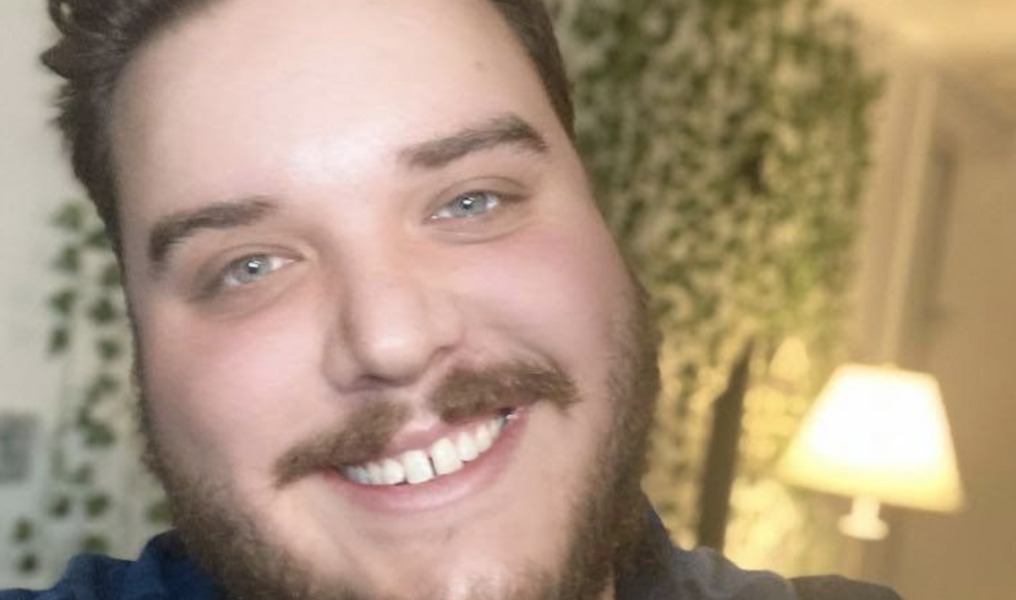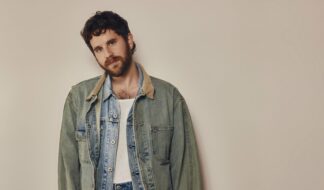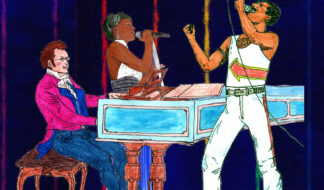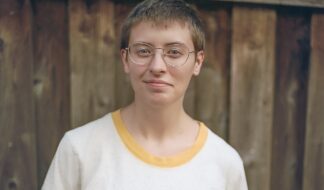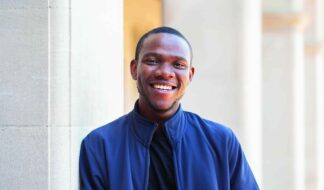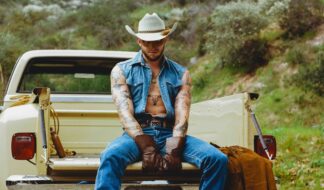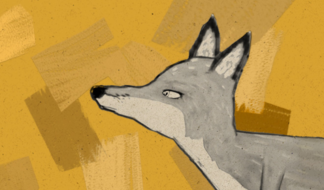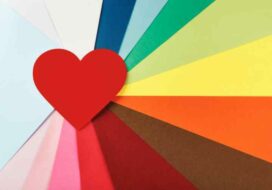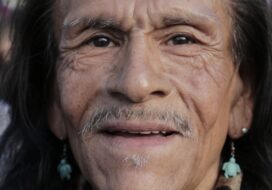Generally, the broad cultural and communicational divides that exist between elders and younger generations are seen as inevitable. And while that may be true to an extent, there are lived experiences that link all people regardless of age — particularly in the LGBTQ+ community. Jacob Gorski, a gay man himself, made this realization when he attended local PFLAG meetings facilitated by his mother last year.
"I found that [these meetings weren't] so much for the parents of lesbians and gays as PFLAG usually is, but it was more a space for LGBTQ elders from the rural surrounding areas to meet and to talk with one another. And the stories that I heard from this group — I just had the feeling that somebody else should be hearing this," Gorski said.
Thus, the idea for "The Gayest Generation" podcast was born.
An employee of Ann Arbor District Library, Gorski introduced the concept of sharing the stories of local LGBTQ+ elders through a podcast at work, and he was given the go-ahead to begin a series. Since Gorski began collecting material for episodes in early 2020, "The Gayest Generation" has featured five LGBTQ+ elders from Southeast Michigan. Though his interviewees have all been local, the topics of their stories have spanned the globe and run the gamut. And Gorski is eager to expand the podcast's scope even further.
"Broadening it is the best possible thing we can do," he said. "The more stories, and diverse stories, [that we can share] that are most likely to go unheard the better."
In the midst of collecting more content, Gorski caught up with Between The Lines to fill us in on the process of featuring new guests, which of his guests have caught him off-guard with their tales, and the importance of sharing previously unheard narratives.
What generation truly is the gayest generation?
Every generation is the gayest generation. There is no generation that isn't the gayest. But I thought, "We need a wordplay kind of title," and the greatest generation [comes to mind]. I knew that that was associated with elders, so I thought, "Let's call it the 'Gayest Generation.'" We ran with it, but in no way shape or form is it meant to quantify the gayness of a generation (laughs), rather it's a fun play on words. Every generation is the "gayest" one.
Have you ever done a podcast before?
(Laughs) This will be my first project like this. My background is in education. I was a high school teacher for a short time, and I realized that a lot of the things that I do in that high school setting still [lends] itself to podcasting — especially when it comes to storytelling. It's funny how there's a little bit of crossover there, but this is my first experience being a podcaster.
What do you think is the value of hearing the stories of LGBTQ+ elders?
The value lies in so many places. I think having these on the record so that people, in 100 years, can look back and listen to them is one of the most wonderful parts about it. I also think that recording these stories and sharing these stories has a purpose with heterosexual elders as well. It is my hope that the LGBTQ elders' counterparts listen to this and understand more about their peers' experiences. I think that a lot of elders in my life have said to me, "We didn't have that back then." And this podcast is a testament to say that, "Yes, you did." And for that reason, it's important as well. But really, it's important for younger generations to understand how it is. And in 2021, people aren't so very interested in the facts. How do you change somebody's mind in 2021? It's through stories. Stories stick with people.
Do you think people discount our local community's ability to be exciting and adventurous with its stories?
Absolutely. Or that, but also I think that sometimes you've just got to sit back and listen. What I hope that the podcast does is it's an example of how listening, the simple act of listening can be a political act. Or it can be an act that makes you better and makes you see the world differently. That's what I hope the podcast does, that it encourages people to listen more.
What's the process like of finding guests?
The process isn't such that I say, "Hey, I'm going to press record and we're going to talk." We get to know each other to a certain extent before the interview because it would be unfair to the elder to go into it not knowing what we're going to discuss — which isn't to say it's scripted. We leave room for spontaneous moments, but we work together to tell the stories that we want to tell. But every time I sit down with somebody, I learn something new. I cannot stress that enough. Every person contains multitudes. Every person. And that has changed how I perceive not only LGBTQ elders but, really, the world around me at large.
Have you ever been surprised by your guests?
In the second episode I sit down with a man named Randy Hasso, and we had talked previously, but we were going to talk about his experience being a Peace Corps agriculture guy in the '70s in Tunisia. Halfway through the conversation, in a way only Randy can, he said, "Yeah, then I went to Morocco and I got mugged. I got stabbed and then I almost died." I said, "What?!" And then he very plainly goes on about the story and how he went to the hospital. But then they got him on a bus to Tunisia. That was a shock, to say the least.
What are your goals for the future of the podcast?
There's only been five episodes so far, and three of those episodes are made up of people that I've met through the PFLAG organization. The other two episodes were people who had listened to the podcast and had reached out to me via email, [email protected] and said, "Hey, I think you might want to pursue this." It has all been personal connections. But if the goal of this podcast is to record and share the unheard stories of LGBTQ elders, then it is important for me to locate people who would like to participate outside of my personal social sphere. That's what I'm really looking to do in the upcoming months.
Learn more about AADL's "The Gayest Generation" Podcast and how to suggest topics at this link.
